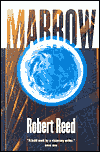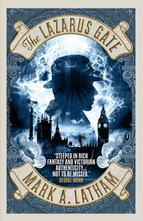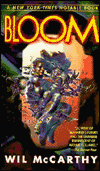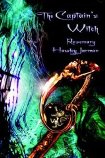
Foundation, by Isaac Asimov
Book Review by Paul Weiss
By the end of the thirteenth millennium, mankind had populated millions of planets scattered throughout the galaxy. The centre of the imperial government was located on the planet Trantor, in effect a single planetary city some 75,000,000 square miles in extent. Every conceivable square foot of habitable space was occupied with a teeming population well in excess of 40 billion souls. Its internal problems were so vast that it was all but inevitable that its grip on the outer reaches of its dominion should weaken. The empire, like every other empire that had preceded it, was in the throes of decline.
Hari Seldon, a brilliant mathematician and psychologist developed the science of psychohistory - the use of mathematics and symbolic logic to evaluate and predict the future behaviour of statistically large segments of human population. When he applied his analysis to the Empire, the conclusions were bleak and inescapable. The stagnating Empire would imminently fall and collapse into a galactic dark age - a period of anarchy and chaos and a loss of art, culture, knowledge, technology and science that would last for thirty thousand years.
When he knew that imperial collapse was inevitable, he created the "Foundation" and implemented what was later to become known as the Seldon Plan. He couldn't stop the dark age but he could shorten its duration to a mere thousand years and give civilization the ability to start over again.
Asimov, known to his millions of fans merely as the "good doctor", certainly didn't stint when it came to the scope of his ideas and the size of the canvas on which he chose to paint. "Foundation" is a classic sci-fi novel that leans far towards the left side of the sci-fi spectrum. Hard sci-fi, technology and advanced science are touched upon only to the extent that they are necessary to make sense of an Empire that spans an entire galaxy. Quaintly, much of the science is seriously dated - data storage is on microfilm, atomic power is the norm even in spaceships that are expected to travel galactic distances - and could hardly be considered brilliantly prescient.
So it is clearly the ideas that Asimov deals with that have elevated "Foundation" to its status as one of the most loved and most read science fiction novels of all time - science as religion, the authoritarian nature of religious dogma, the insidious Machiavellian nature of political diplomacy, the inevitability of the decline and collapse of a major empire and a powerful discussion as to whether violence is a necessary tool to resolve differences or whether it is merely "the last refuge of the incompetent".
While I will happily acknowledge that "Foundation" was interesting and thoroughly enjoyable, I was somewhat disappointed to discover that it did not have the same thrill or excitement that I experienced when I first read it thirty years ago. The level of science in the book seems almost lack-lustre and in my mind did not live up to the grandiose scope of the novel. Like so many of his peers in the 1950s, women were stoutly ignored and played no part in "Foundation" at all.
Dickens wrote at the turn of the century so one expects his prose to be different. Asimov wrote "Foundation" in 1951 so one certainly expects it to be a product of that time. But, unlike Dickens (and I'm not really quite able to put my finger on the reason why), the prose simply didn't age quite as well. So, in the full knowledge that many will disagree with me, I'm unwilling to accord "Foundation" the 5-star rating that many will expect. Four stars only from this reader and a high recommendation that this book must be read if you claim to be a fan of the classic sci-fi genre.
|
Click here to buy Foundation, by Isaac Asimov on Amazon
|
Foundation, by Isaac Asimov on Amazon

| More Books You Might Like |
| Comments on Foundation, by Isaac Asimov |
| There are no comments on this book. |




